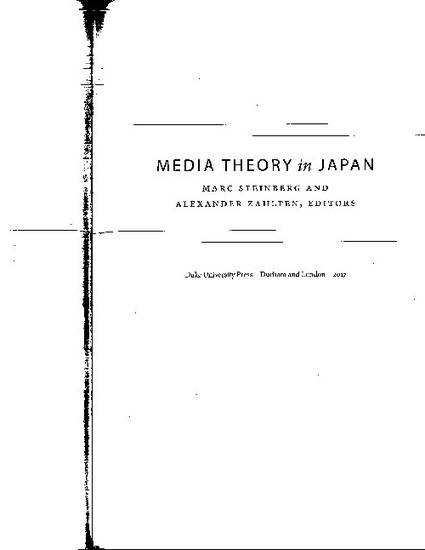
Contribution to Book
From Film to Television: Early Theories of Television in Japan
Media Theory in Japan
(2017)
Abstract
If, as Lev Manovich has argued, new media often repeat older media, this essay considers how new media theory can repeat that of older media. By focusing on one of the groundbreaking moments in development of television theory in Japan—the 1958 issue of the journal Shisō devoted to the new medium—and in particular its leader, the sociologist Shimizu Ikutarō, this chapter notes how claims about television’s unique relation to the everyday forgot similar claims about cinema’s relation to the mundane made decades before by Gonda Yasunosuke. It is argued that such assumptions functioned in part to repress the historical politics of the everyday or, more specifically, the history of media’s relationship with the everyday. In the end, the debate over the everyday was not just about which media was closer to the everyday or what constituted the mediated everyday but also about the relation of theory to the everyday—the everydayness of theory.
Keywords
- television,
- Japan,
- theory,
- cinema,
- everyday,
- Shimizu Ikutaro
Disciplines
Publication Date
2017
Editor
Marc Steinberg and Alex Zahlten
Publisher
Duke University Press
Citation Information
Aaron Gerow. "From Film to Television: Early Theories of Television in Japan" Media Theory in Japan (2017) p. 33 - 51 Available at: http://works.bepress.com/aarongerow/54/